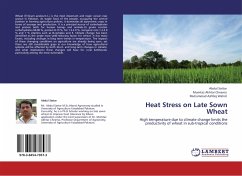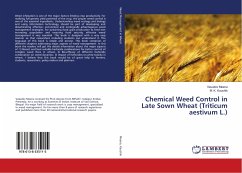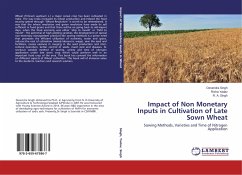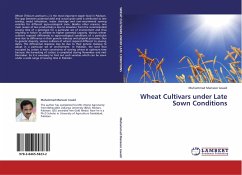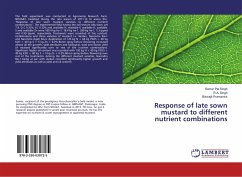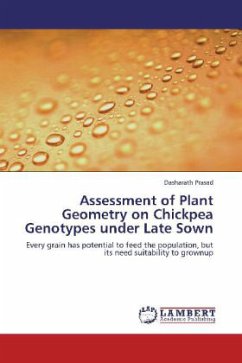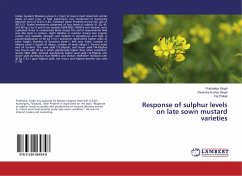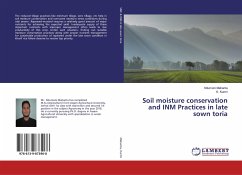Wheat (Triticum aestivum L.) is the most important and major cereal crop grown in Pakistan. As staple food of the people, occupying the central position in farming agriculture policies, it dominates all agronomic crops in terms of acreage and production. It is a principal source of carbohydrates and protein both for human beings and animals.Its grains contain carbohydrates 60-90 %, protein 8-15 %, fat 1.5-2.0 %, inorganic ions 1.2-2.0 % and 1 % vitamins such as B-complex and E. Climate change has been identified as the single most yield-reducing factor for wheat. It has many facets, including changes in long term trends in temperature. The impacts of these changing conditions on agriculture are already being seen, yet there are still considerable gaps in our knowledge of how agricultural systems will be affected by both short- and long-term changes in climate, and what implications these changes will have for rural livelihoods, particularly among the most vulnerable.
Bitte wählen Sie Ihr Anliegen aus.
Rechnungen
Retourenschein anfordern
Bestellstatus
Storno

